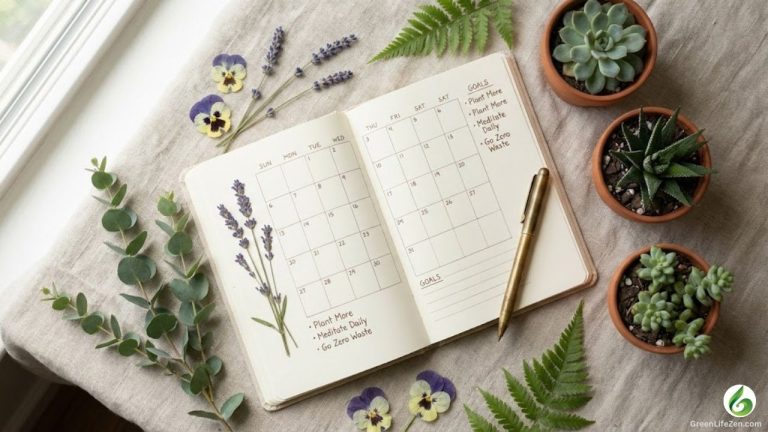Are you ready to embark on an incredible journey while making a positive impact on the planet? We’ve got just the guide for you! In ’11 Essential Tips for Eco-Friendly Travel and Tourism,’ we’ll share valuable advice on how to engage in sustainable travel practices.
Did you know that tourism contributes to approximately 8% of global carbon emissions? But don’t worry, we’ve got you covered with practical tips to minimize your carbon footprint and maximize positive benefits.
From choosing eco-friendly accommodations and transportation options to supporting local communities and conserving water and energy, we’ll show you how to travel responsibly while fostering a sense of belonging and connection with the world around you.
Let’s get started on this eco-adventure together!
Choose Sustainable Transportation Options
For a truly sustainable travel experience, we should always opt for the most environmentally-friendly transportation options available to us.
By choosing sustainable transportation, we can reduce our carbon footprint and support local communities, making a positive impact on the places we visit.
One of the easiest ways to travel sustainably is by utilizing public transport whenever possible. Trains, buses, and trams aren’t only more fuel-efficient than private vehicles, but they also help reduce traffic congestion and carbon emissions.
Additionally, walking or cycling for shorter distances is a great way to further reduce our carbon footprint while immersing ourselves in the local culture.
Pack Light and Choose Eco-Friendly Travel Gear
When it comes to eco-friendly travel, packing light and choosing the right gear can make a big difference.
By opting for sustainable packing options, such as packing clothes made from sustainable materials and using reusable containers, we can reduce our environmental impact.
Additionally, selecting eco-friendly travel gear like reusable cutlery and water filtration systems helps minimize waste and promotes sustainability on the go.
Sustainable Packing Options
Optimizing our packing choices is essential for sustainable travel and tourism, making conscious efforts to pack light and choose eco-friendly travel gear. When it comes to sustainable packing options, there are several things we can do to reduce our environmental impact.
First, bring a reusable water bottle to stay hydrated while minimizing single-use plastic waste. Additionally, pack reusable shopping bags to avoid contributing to plastic pollution during your trip.
Consider investing in zero waste travel products such as reusable cutlery, food storage containers, and canvas bags. These items not only help reduce waste but also save money in the long run. Finally, when dining out, choose local restaurants that prioritize sustainability and minimize plastic waste.
Eco-Friendly Gear Choices
To further minimize our environmental impact, we can make eco-friendly gear choices by packing light and selecting sustainable travel gear. Here are three items to consider when making your eco-friendly gear choices:
- Lightweight and compact: Opt for gear that’s lightweight and takes up minimal space in your luggage. This not only reduces the weight and size of your bags, but also helps to reduce fuel consumption during transportation.
- Sustainable materials: Look for travel gear made from sustainable materials such as recycled plastics, organic cotton, or bamboo. These materials have a lower environmental impact compared to conventional options.
- Energy-efficient technology: Choose gear that utilizes renewable energy sources or energy-efficient technology. For example, consider investing in solar-powered chargers for your electronic devices or a portable water filter that doesn’t require batteries.
By making these eco-friendly gear choices, you can reduce your carbon footprint and minimize your impact on the environment while traveling.
Additionally, supporting companies that prioritize sustainability can contribute to the growth of the local economy and the development of renewable energy solutions.
Stay in Eco-Conscious Accommodations
When it comes to eco-friendly travel, one important aspect to consider is where you choose to stay. Sustainable lodging options and environmentally-friendly hotel choices are becoming increasingly popular.
By staying in eco-conscious accommodations, you can support businesses that prioritize waste reduction, energy conservation, and other green practices.
Look for hotels or accommodations that are certified by sustainable tourism organizations and offer amenities such as energy-efficient lighting, water-saving fixtures, and organic, locally sourced meals.
Sustainable Lodging Options
For a more sustainable travel experience, we recommend staying in accommodations certified by sustainable tourism organizations that prioritize eco-conscious practices.
Here are three sustainable lodging options to consider:
- Choose accommodations that follow the Leave No Trace Principles: Look for hotels or lodges that actively promote responsible tourism by minimizing their impact on the environment. These establishments prioritize practices such as waste reduction, recycling, and energy conservation.
- Support local businesses: Opt for accommodations that source their products and services from local communities. By choosing to stay in locally-owned hotels or guesthouses, you contribute to the local economy and help sustain the livelihoods of the people who live in the area.
- Consider carbon offsetting: Some accommodations offer the option to offset your carbon emissions from travel by investing in projects that reduce greenhouse gas emissions. This allows you to take responsibility for your environmental impact and support initiatives that combat climate change.
Remember to bring a reusable bottle with you to avoid single-use plastic and reduce waste during your stay. By making conscious choices about where you stay, you can have a positive impact on the environment while enjoying your travels.
Environmentally-Friendly Hotel Choices
Staying in eco-conscious accommodations is a key component of practicing environmentally-friendly travel and tourism. When choosing a hotel, it’s important to consider their commitment to sustainability.
Look for accommodations that have been certified by sustainable tourism organizations, as they adhere to strict environmental standards. These hotels prioritize reducing their carbon footprint by conserving energy and minimizing water use. They also focus on waste reduction and recycling to minimize their impact on the environment.
Additionally, environmentally-friendly hotels support the local community by sourcing local and organic products for their meals, reducing the need for transportation and supporting local businesses.
Support Local Communities and Businesses
While traveling, we can actively support local communities and businesses by engaging in sustainable practices. Here are three ways we can do this:
- Eat local: By dining at locally owned restaurants and cafes, we not only get to savor authentic flavors, but we also support local farmers and food producers. Local food not only benefits locals, but it also reduces our carbon footprint by minimizing transportation distances.
- Hire local guides: When exploring new destinations, consider hiring local guides who have a deep understanding of the area’s history, culture, and hidden gems. This not only supports local people by providing them with employment opportunities, but it also enriches our travel experience by gaining insider knowledge.
- Explore smaller towns: While popular tourist destinations are enticing, consider venturing off the beaten path and visiting smaller towns. This allows us to contribute to the local economy, as these communities often rely heavily on tourism. Plus, we get to enjoy a more authentic and less crowded experience.
Minimize Water and Energy Usage
Let’s talk about some practical ways we can minimize our water and energy usage while traveling. One simple technique is to practice efficient showering by taking shorter showers instead of baths. Additionally, we can choose accommodations that prioritize energy-saving technologies and water conservation practices.
Efficient Showering Techniques
We can conserve water and energy while showering by implementing efficient techniques. Here are three tips to help you reduce your environmental impact:
- Take shorter showers: Limiting your shower time can significantly decrease the amount of water and energy used. Aim for a quick, efficient shower by turning off the water while lathering and shampooing. This simple change can make a big difference.
- Use a low-flow showerhead: Installing a low-flow showerhead can reduce water usage without compromising the shower experience. These showerheads restrict the flow rate, saving both water and energy. Look for models that are WaterSense certified for maximum efficiency.
- Avoid single-use plastic: Instead of using single-use plastic toiletries, bring your own refillable bottles and eco-friendly products. This helps reduce the amount of plastic waste generated and the energy needed to produce these items.
Energy-Saving Accommodation Options
To minimize water and energy usage during your eco-friendly travels, we can choose accommodations that prioritize energy-saving practices. By selecting energy-saving accommodation options, we can have a positive impact on both the environment and our wallets.
When looking for a hotel room, consider staying in eco-friendly hotels or accommodations certified by sustainable tourism organizations. These establishments are committed to reducing their social and environmental impacts by implementing energy-saving measures.
By choosing such accommodations, you can help reduce greenhouse gas emissions and reduce your carbon footprint. Additionally, when staying in these energy-saving accommodations, make sure to turn off lights, air conditioning, and electronics when not in use.
Remember, slow travel is about making conscious choices that have a lasting and positive impact.
Water Conservation Practices
By implementing water conservation practices, we can effectively minimize water and energy usage during our eco-friendly travels. Here are three simple yet impactful ways to practice water conservation:
- Take shorter showers: Opt for quick showers instead of long baths to reduce water consumption. Consider using a water-saving showerhead to further minimize water usage.
- Reuse towels: Hang up your towels after use instead of requesting new ones every day. This helps conserve water and reduces unnecessary laundering, saving energy and resources.
- Choose eco-friendly activities: Engage in water-related activities that promote environmental conservation. For example, snorkeling or diving tours that emphasize responsible marine practices and support local conservation efforts.
Reduce, Reuse, and Recycle on Your Trip
When it comes to reducing waste during our travels, it’s important to prioritize the principles of reduce, reuse, and recycle. One simple way to reduce waste is by packing zero waste and reusable products. Bring your own reusable water bottle and refill it from safe water sources to avoid using single-use plastics.
Supporting local businesses is another great way to reduce waste and contribute to the preservation of local culture and heritage. Choose locally-owned businesses over multinational chains and buy locally-made products and souvenirs.
Additionally, you can reduce single-use items like toiletries and plastic bottles by using refillable toiletry containers and bringing your own toiletries.
Engage in Responsible Wildlife Tourism
Responsible engagement with wildlife is crucial for promoting sustainable tourism practices. When engaging in wildlife tourism, there are several key principles to keep in mind:
- Research and choose ethical wildlife experiences: Before booking any wildlife activities, take the time to research the operator or organization offering the experience. Look for those that prioritize animal welfare, conservation, and sustainable practices.
- Engage with a local guide: Local guides possess valuable knowledge about the wildlife and ecosystems in the area. By engaging with them, you can gain a deeper understanding of the animals and their natural habitats, while also supporting the local community.
- Visit national parks and protected areas: These designated areas are specifically designed to conserve and protect wildlife. By visiting these areas, you can witness animals in their natural habitats while supporting the conservation efforts of these protected areas.
Respect and Preserve Natural and Cultural Heritage
To further promote sustainable tourism practices, we can actively respect and preserve natural and cultural heritage through conscious choices and actions.
As responsible travelers, it’s vital to understand the importance of preserving the environment and respecting the local residents and their cultural traditions.
When visiting natural sites, such as national parks or spiritual sites, we should follow the designated trails and adhere to Leave No Trace principles to minimize our impact on the environment.
Additionally, supporting local businesses and participating in local tours and activities not only benefits the economy but also allows us to immerse ourselves in the local culture and heritage.
By educating ourselves about the history and customs of the destination, we can show respect and appreciation for the natural and cultural heritage.
Together, we can make a positive difference in the tourism industry, protecting the environment and preserving the rich heritage of our host communities in the face of climate change.
Support Conservation and Protected Areas
As responsible travelers, we can actively support conservation and protected areas to ensure the preservation of natural and cultural heritage. Here are three ways we can make a difference:
- Research and Visit Protected Areas: Take time to explore and add protected areas to your travel itinerary. By visiting these areas, you not only contribute to their economic sustainability but also show your support for their protection and conservation efforts.
- Offset Your Carbon: The amount of carbon caused by travel can have a significant impact on the environment. Consider offsetting your carbon emissions by investing in projects that reduce greenhouse gases. By doing so, you can help minimize the negative effects of your travel on the environment.
- Pay Usage Fees: When visiting protected areas, be sure to pay the required usage fees. These fees directly contribute to the conservation efforts and help maintain the integrity of the protected areas. By paying these fees, you’re supporting the current and future economic sustainability of these areas and ensuring their preservation for generations to come.
Offset Your Carbon Footprint
By actively supporting conservation and protected areas, we can also take steps to offset our carbon footprint and minimize the environmental impact of our travel. One practical way to do this is by purchasing carbon offsets. These offsets are equivalent to the amount of CO2 produced during our trips and help fund projects that reduce greenhouse gases.
To get started, calculate your carbon footprint using an online carbon calculator. Once you have an idea of your impact, you can participate in carbon offset programs that invest in projects such as protecting rainforests, building wind farms, or converting cow manure into energy. By offsetting the money we invest in these projects, we can balance out the carbon footprint of our next trip and make a positive impact on the environment.
So, when planning your bucket list adventures or even your next vacation, consider offsetting your carbon footprint and joining the global effort to combat climate change. Every single day, we have the power to make a difference and support both the planet and the people in need. And remember, choose a reputable tour company that also values eco-friendly practices and offers options to offset your carbon footprint.
One example is New Zealand, a country known for its breathtaking landscapes and commitment to sustainability. So let’s travel responsibly and leave a positive impact wherever we go.
Educate Yourself and Spread the Word
Let’s delve into the importance of educating ourselves and spreading awareness about sustainable travel practices. Here are three key ways to do just that:
- Educate Yourself: Take the time to research and learn about eco-friendly travel and tourism. Understand the impact of your choices, such as avoiding single-use items like tiny hotel bottles and supporting hotels that prioritize sustainability. Stay informed about current initiatives like the Glasgow Declaration, which promotes responsible tourism. By educating yourself, you can make more informed decisions and inspire others to do the same.
- Spread the Word: Share your knowledge and experiences with others. Write online reviews to highlight eco-friendly accommodations and attractions. Talk to friends and family about the importance of sustainable travel and encourage them to join the nofly movement or choose greener transportation options. By spreading the word, we can create a ripple effect and inspire others to make conscious choices.
- Support Sustainable Tourism Initiatives: Engage with organizations and initiatives that promote sustainable tourism. Join local conservation groups, support eco-friendly tour operators, and participate in community-based tourism projects. By supporting these initiatives, we contribute to sustainable travel efforts and help create a positive impact on the environment and local communities.
Let’s educate ourselves, spread the word, and be conscious travelers who contribute to a more sustainable future for eco-friendly travel and tourism.
Conclusion
Practicing eco-friendly travel and tourism isn’t only beneficial for the environment but also for local communities and economies. By following the 11 essential tips mentioned in this article, we can make a significant impact in preserving nature and culture while reducing our carbon footprint.
Did you know that according to the World Tourism Organization, tourism accounts for 5% of global CO2 emissions? By adopting sustainable travel practices, we can help minimize this impact and create a more sustainable future for generations to come.








